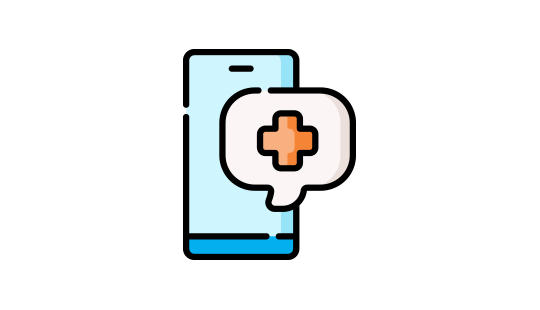Check out 10 Growing Healthcare Application Categories That Are Transforming The Way We Think About Healthcare!
After COVID-19’s devastating effects on countless individuals and numerous countries, it has been almost three years. The peak of exhaustion for the healthcare systems happened at that time. Healthcare providers acknowledged the value of technology as the market for healthcare software reached its apex, ensuring that the systems function properly when it counts most.
As a result, the healthcare industry has become a leader in adopting technological solutions to enhance work processes, improve business results, and achieve sustainable performance. According to a report by Markets and Markets, the worldwide healthcare IT industry is predicted to grow at a revenue CAGR of 20.3% from USD 326.1 billion in 2021 to USD 821.1 billion by 2026.
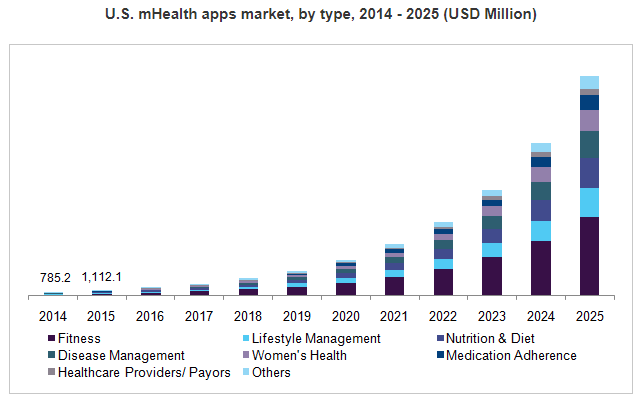
Graph Chart – the worldwide healthcare IT industry
The healthcare sector can use software development to automate a variety of tasks, including medical billing, appointment scheduling, inventory management, EHRs maintenance, and more, to lighten the load on healthcare personnel.
Choosing the appropriate Healthcare Application is one of the most critical components of medical care and a requirement for delivering great healthcare. The right healthcare application can help you improve your services and the general well-being of your team. Finding the right medical software for hospitals and medical practices is still difficult. Because there are so many options and limited time, the most common types of healthcare apps are briefly described below:
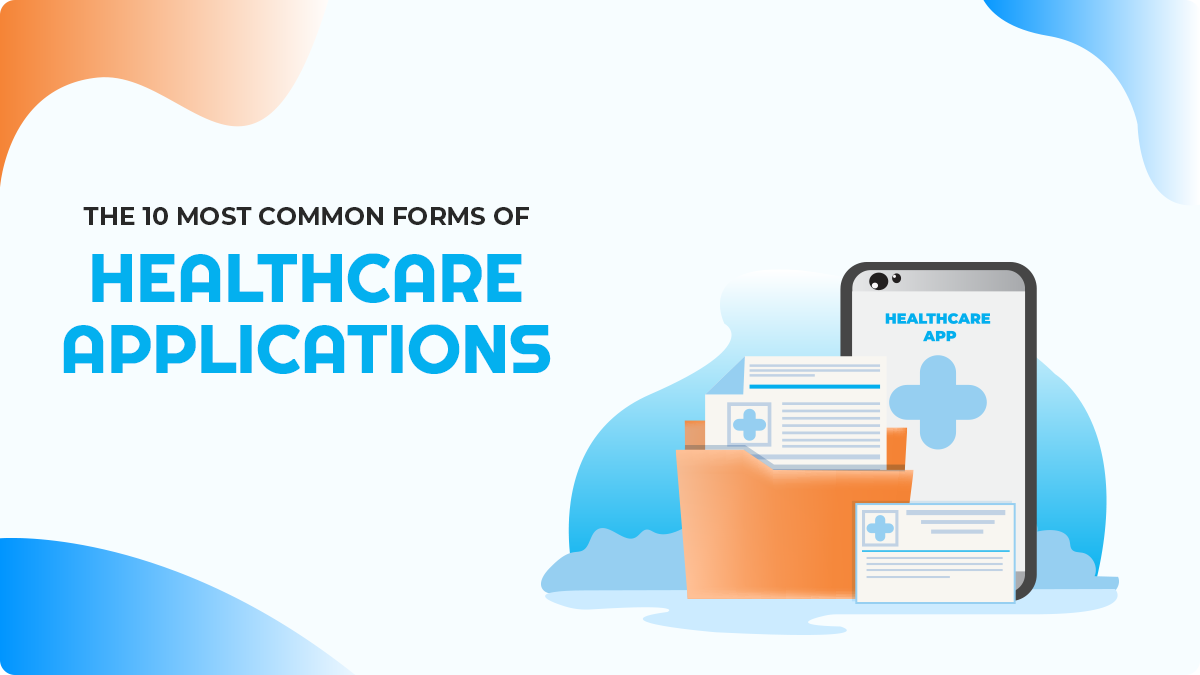
1. Personalized Healthcare Application
The medical histories of every family member are organized and stored in this specific healthcare app. Patients find it very helpful to receive all health-related paperwork and information in an easy-to-use format. PHR software functions as an optimization tool that provides users with quick access to the necessary data for patient monitoring. It is an important component of the whole bespoke healthcare software development ecosystem.
The patient might be informed about their health state or upcoming tasks through push notifications and data analytics. To be more precise, a solution like this may serve as a wellness program, assisting patients in keeping track of their medical conditions and implementing healthier lives, thanks to the personal data that has been collected. Personal health record software may handle it all, from eliminating all paperwork to customizing wellness goals and alerting medical professionals about unexpected catastrophes.
2. Healthcare Customer Relationship Management (CRM)
Medical professionals and clinics are assisted in keeping in touch with patients by healthcare customer relationship management (CRM) software. It offers automated service sales, registration, and personalization based on available data, which is not much different from CRMs used in other industries.
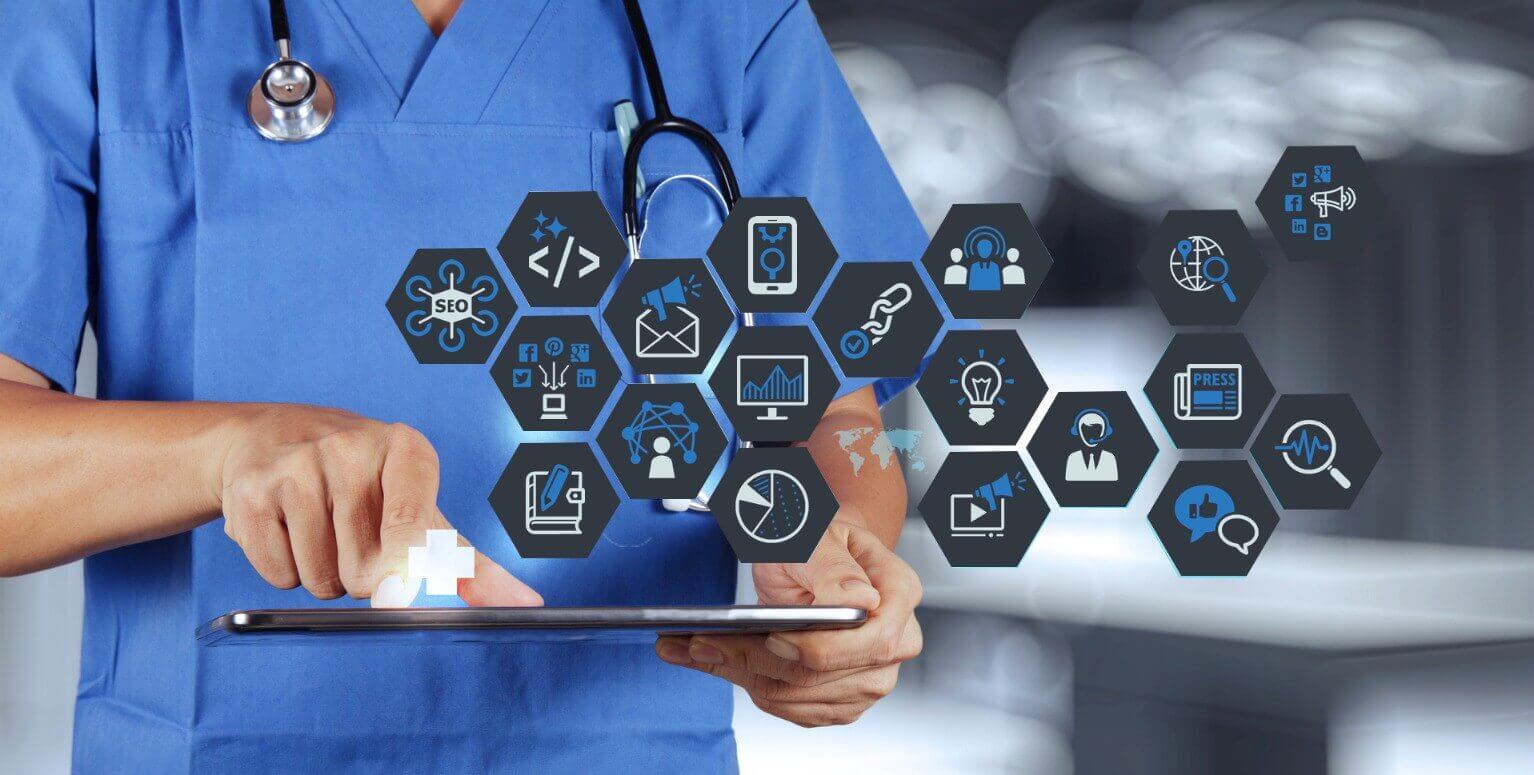
Because they may store client data like medical histories, visit records, and bill information, healthcare CRMs can provide information on the clinic’s daily operations. Individuals who have upcoming checkups or appointments for prescription refills can get automatic reminders. Their overarching objective is to accelerate the data-driven decision-making process and streamline all clinic administrative tasks.
3. Electronic Health Tracking Applications
This sort of software includes programs for measuring physical activity and motions, tracking vitals and diets, and the most recent form — mental health and wellness apps. As a result, it is unquestionably the most diverse category of healthcare software solutions. Though not officially “healthcare software products,” these apps can still be considered a source of additional patient-generated health data.
The most popular types of health tracking apps are wearable’s, where the software is built into the hardware. Examples include the Apple Watch and Fitbit, which monitor your exercise, heart rate, sleep quality, and other factors.
![]()
In addition, businesses have begun producing bracelets, wristbands, and rings that go above and beyond to assist those who are dealing with diabetes, infertility (by monitoring your menstrual cycle or body temperature), and other concerns.
4. Diagnostic Medical Software

Using software for medical diagnosis is one of the finest techniques to assist in patient diagnosis. The majority of artificial intelligence-powered medical diagnosis software can respond to patient data and symptom information. The medical diagnosis software will let you narrow down therapy options once you start entering information. The majority of systems can also evaluate patient data and enable internal doctor collaboration on patient diagnosis. Cross-pollination across various departments and diagnosis is encouraged.
Healthcare diagnosis application aids in the analysis and prognosis of diseases. This app can be used to interact with, treat patients, and identify patterns or trends.
5. Apps for Making Appointments
Software for scheduling appointments is used by hospitals, private clinics, and doctors. Generally, it contains two panels: one for management and one for patients (on the side of the clinic). Its main objective should be very clear: to make making an appointment with a doctor easier. Patients can easily schedule appointments, get reminders, provide the doctor with any essential information in advance, and change or cancel their scheduled appointments.
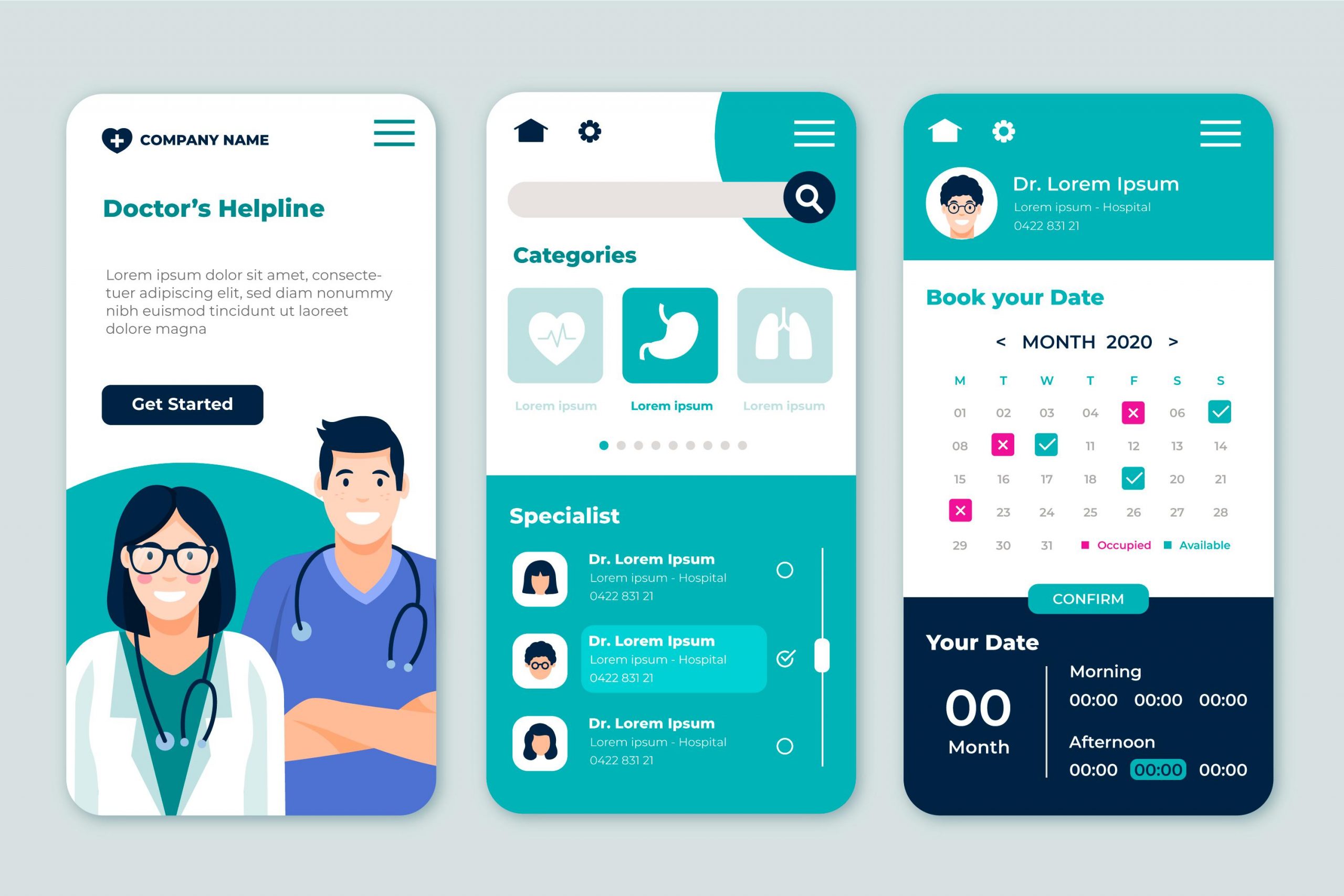
Image by Freepik
It gives the clinic a clear and understandable picture of its doctors’ schedules from a management standpoint. The front desk of the clinic is using a clever trick to speed up the tiresome procedure of reconfirming and rebooking each scheduled appointment.
Read more: How Can A Healthcare App Development Benefit Your Business?
6. Hospital Administration Applications
The main goal of hospital management software is to streamline administrative processes. HMS software could handle common tasks like appointment scheduling or financial data organization. Your administrative team may work more flexibly and save time thanks to hospital management software. Workflow data can be optimized and reviewed, finances can be found and stored, and patient care can be improved.
You may also get essential medical features from hospital management software, like:
- Texting patients when needed
- Sharing of files or images
- Patient notifications on a regular basis
- Security upgrades
- In case of emergency, valuable information.
Plus more!
If you decide to spend money on hospital management software, you should choose an app that is user-friendly and has end-to-end encryption. It’s crucial that the software is simple to use across departments and secure for storing patient data.
7. E-prescriptions
Since electronic prescription software is highly influenced by governmental regulations, it may vary from one nation to another. Yet, the fundamental concept remains the same. In addition to writing new prescriptions, e-prescribing software enables doctors to keep track of previous prescriptions, renew them, or cancel them as necessary. In some countries, the software offers direct contact with the pharmacy of your choice for convenience.
This ensures that all parties are informed of the crucial prescription requirements and ensures the security of the information.
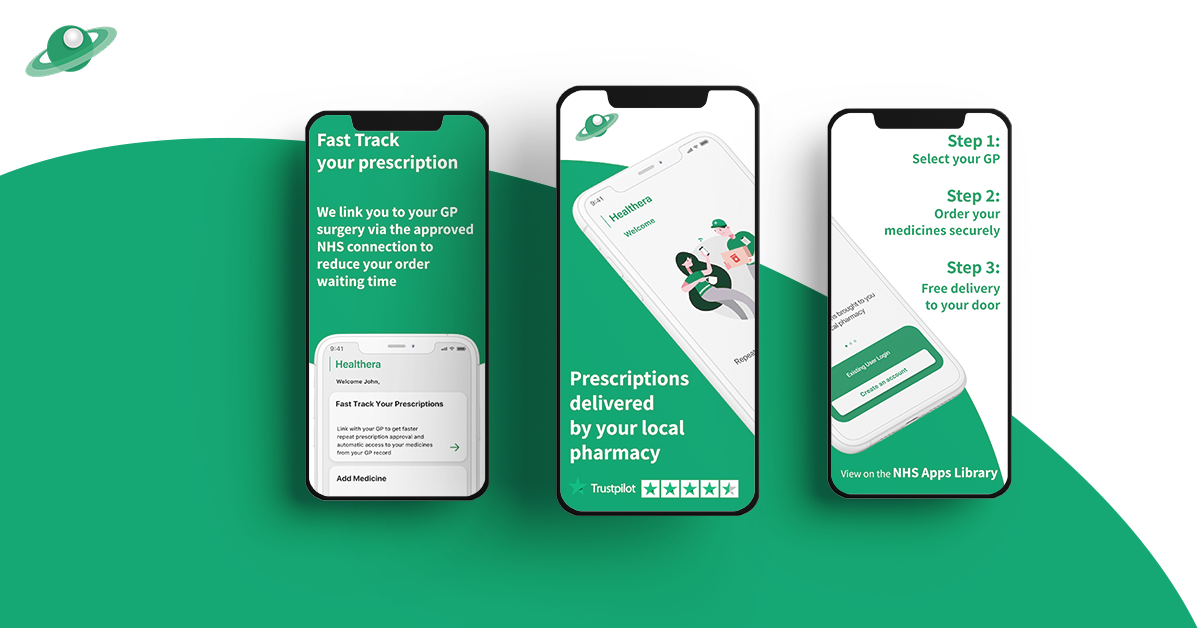
8. Apps for Telemedicine
Telemedicine services have significantly increased in importance as a result of the pandemic. Telemedicine is the practice of treating patients using online video, chat, or phone calls. It has been essential in providing care in rural locations and halting community spread. But telemedicine’s potential benefits are just now being realized by medical professionals and patients. People are still receiving the services they require while visiting doctors for a fraction of the expense. These services prevent outbreaks and guarantee that patients visit their doctor even when they have a full schedule. Although the pandemic is (hopefully) coming to an end, telemedicine will continue to exist.
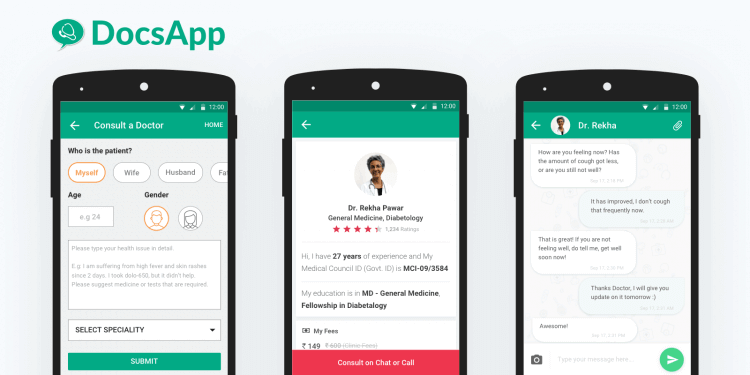
9. Emergency Care Software
Emergency Care software offers information management solutions to hospitals, fire departments, ambulance services, and other critical care services. Hiring and onboarding, patient records, call, unit, station, invoicing, and vehicle management are just a few of the options for managing EMS workers and departments. EMS tools are used by organizations to reduce patient care record (PCR) information errors, assist computer-aided dispatch and 911 systems, speed up first responder reaction times, keep staff trained, and offer real-time tracking and reporting for risk management.
The majority of volunteer, commercial, municipal, county, and city agencies use EMS systems. EMS software frequently interfaces with GPS, billing, payroll, and HR solutions and is typically adaptable to the requirements of your business.
10. Health Research Software
A database of significant medical literature, reviews, and journals, all supported by in-depth studies, is compiled by medical research platforms. These platforms enable medical professionals to diagnose and treat patients using the most recent data.
The software’s primary goal is to inform medical professionals and give them access to current knowledge in all medical domains. Doctors might also discuss odd symptoms in order to advance research.
The Conclusion
Are you looking at several Healthcare Application categories for your requirements?
If you are still unsure of where to begin, our skilled team of healthcare software developers can help you focus your search or create a productive software application that meets your needs.
Do you currently have a healthcare software project in mind? Contact Us Today!
Come on, let’s make it happen!
